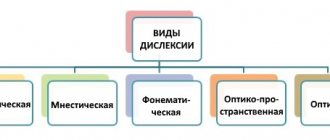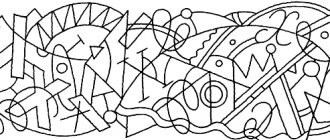Definition 1
Speech therapy is a branch of pedagogy that studies the speech development of children and develops methods and directions for correctional work aimed at eliminating speech defects.
Speech therapy refers to the complex of scientific knowledge of special pedagogy. She is engaged in a detailed study of various speech pathologies, their influence on the overall development of the personality of a student of a certain age, the characteristics of the manifestation of speech deviations and the possibilities of functioning of the cognitive and other spheres of the personality in the presence of a particular speech disorder. Speech therapy develops correctional education technologies aimed at creating conditions for the full learning and comprehensive development of a child with a particular speech pathology.
Are you an expert in this subject area? We invite you to become the author of the Directory Working Conditions
Speech therapy has ancient roots. It developed over the centuries, gradually entering pedagogical practice and subsequently established itself as scientific pedagogical knowledge.
Pre-scientific stage of development of speech therapy
Pre-scientific views affecting the issues of speech development of children and their correction can be represented by several stages of development:
- The Ancient East. This includes theories of speech therapy put forward before B.C. The first mention of speech disorders can be seen in the works of the Egyptian philosopher Edmond Smith. He associated speech disorders with physical developmental disabilities or injuries, and also argued about the connection of brain activity with the functioning of the speech apparatus. Also, speech disorders were considered in Indian Ayurvedic teachings. They reflected the parameters of the development of serious speech pathologies caused by physical damage to the organs of articulation. If you look at the Bible, even in it there are references to speech disorders: stuttering and versions of its development, hearing loss, muteness. Possible options for healing from ailments are also given here. All of them, as a rule, are of a “miraculous” nature. But this is the first step towards solving speech correction issues.
- Ancient Greece. Speech disorders are considered in this period from a philosophical perspective. The first mentions of speech disorders can be traced in the works of Herodotus. He studied stuttering and the causes of its occurrence. Further research into speech disorders can be traced in the works of Hippocritus, the founder of ancient medicine. It looks at stuttering, slurred speech, tongue-tiedness, complete loss of speech, and hearing loss. It was Hippocritus who reflected the importance of brain function and its impact on human speech development. Aristotle also studied speech disorders. He believed that the cause of any speech disorder is a malfunction of the organs of articulation.
- Ancient Rome. Studies of speech by scientists of Ancient Rome were initially based on physiology and its problems. Speech pathologies were considered a consequence of diseases of the tongue, and their correction was based on surgical intervention.
- The Middle Ages. Speech therapy views were based on the works of the doctor Ibn Sina (Avicenna). He argued that speech disorders are a consequence of malfunctions of the organs of articulation. He wrote the work “The Canon of Medical Science,” which examined speech disorders, gave examples of them, and proposed methods of correction.
- Renaissance. During this period, speech disorders were considered by thinkers Francois Rabelais, Thomas More, Michel Montaigne. Rabelais connects the development of speech with the mental and physical education of the child.
- Western Europe XVII – early XVIII centuries. at this time, pedagogical thought is based on the ideas of humanistic education, in connection with which the issues of the formation of correct speech, without which the creation of such a personality is impossible, are explored. Ya.A. Komensky, the founder of pedagogy, studied the speech development of a child and argued for the need to develop a child’s vocabulary, develop his expressive speech skills and focus on the development of the sound side of a preschool child’s speech.
Finished works on a similar topic
Coursework History of speech therapy 430 ₽ Abstract History of speech therapy 260 ₽ Test paper History of speech therapy 250 ₽
Receive completed work or specialist advice on your educational project Find out the cost
Designation of speech defects
Education as a social phenomenon is a purposeful, organized, systematic transfer of experience in social relations, the results of the development of social consciousness, a culture of productive work, knowledge on active transformation and environmental protection by elders and assimilation by the younger generation. This is the social meaning of education.
Education ensures the continuity of generations, the full functioning of society and an adequate level of personal development. This is its objective purpose in society and psychological significance.
The main mechanisms for mastering content in the learning process are purposefully organized in special forms of interaction, joint activities of children and adults, students and teachers, and their meaningful cognitive communication.
Learning depends on specific historical conditions. Different eras and civilizations leave their mark on its organization: in the selection of material content for different social groups, in the choice of methods of indoctrination and manipulation of consciousness. This is the pedagogical meaning of teaching.
In pedagogy, learning is understood as a specially organized, purposeful and controlled process of interaction between teachers and students, the purpose of which is the acquisition of knowledge, skills, abilities, the formation of a worldview, the development of spiritual strength and potential of students, and the consolidation of abilities for self-education.
The basis of learning is knowledge, skills and abilities, which on the part of the teacher are the first (basic) components of the content, and on the part of the students - the products of assimilation.
Knowledge is a set of information, concepts and ideas about objects and phenomena of objective reality acquired by the student.
Skills are learned, automatic motor, sensory, and mental actions that are performed accurately, easily, and quickly with low mental stress and ensure the effectiveness of human performance.
Skills are a person’s ability to creatively apply knowledge and skills to achieve the desired result in constantly changing practice conditions, which is achieved in the learning process.
By transferring this or that knowledge to students, the teacher always gives them the necessary orientation and, as if by the way, but in fact very thoroughly, forms the most important ideological, social, ideological, moral and many other attitudes. Therefore, the training is educational in nature. Likewise, we must recognize that all learning always contains elements of schooling. By teaching, we educate, by educating, we teach. The terms “training” and “education” overlap to some extent.
The essence of education is more fully and clearly manifested in its functions, the most important of which is the formation of knowledge, skills and abilities in people. During its implementation, a person forms and consolidates the basic knowledge, skills and abilities necessary for all life situations and activities.
Another function of education is the formation of a person’s worldview. Worldview is formed in children and adults objectively, gradually, in the process of generalizing knowledge that allows us to evaluate the world around us.
Accumulation of linguistic and pedagogical ideas about the development of correct speech in children
One of the definitions of psychology says: psychology is a science whose object of study is the laws of formation, functioning and development of the human psyche.
An attempt to understand the word “psyche” encounters a terminological barrier. In fact, psychology takes its name from the Greek words “psyche” (soul) and “logos” (study). So psychology is the study of the soul? This has been considered for many centuries in a row. And today we hear and say everywhere: “the soul rejoices,” “the soul hurts,” “the soul is out of place,” “a soulful person,” etc. So “soul” or “psyche”?
Scripture says that the soul is given to man by God for temporary use. In this case, it is something absolutely incomprehensible, unattainable for a mortal person. In everyday psychology, where knowledge about the inner world of a person is drawn from everyday life, these words - “soul” and “psyche” - have become synonymous. In scientific psychology, where knowledge is obtained through theoretical and experimental research, the word “psyche” is used.
Since childhood we have been saying: “I want”, “I think”, “I feel”, “I imagine”. We think about the strengths and weaknesses of his memory and will, his abilities and character, temperament and intelligence. Each of us from an early age is able to “feel” the emotional state of another person, distinguish the mood of other people, the characteristics of their character. This understanding formed the basis of (everyday) psychology, which generalizes and condenses the experience of many generations. His knowledge is very approximate, vague, and sometimes simply erroneous. It is rather an illusion of knowledge, which, unfortunately, replaces real education.
The difference between scientific psychology and everyday psychology is that it knows the answer to the question “how”, on the basis of which conclusions and conclusions are drawn. Scientific psychology is based on rigorous, researched and repeatedly verified facts, which are logically systematized and explained in special scientific theories.
Thus, psychology is a field of knowledge about the inner (mental) world of man.
The study of the essence and laws of development of the human psyche is the subject of scientific psychology.
A specific feature of a person is the presence of a double life: external, directly observable, and internal, hidden from view. In the latter, he thinks, plans, conducts an internal dialogue with himself. Externally observable life is given to us in the form of behavior.
The subjective world of a person is organized in a complex way; it is limitless in space and includes all dimensions of time: past, present and future. Only a person can look into tomorrow, dream, live in the future, build a perspective for his own life. It was this feature that F. Nietzsche had in mind when he aphoristically said that man is an animal that can promise.
Modern psychology considers the psyche as a property of highly organized matter, which consists in the active reflection of the objective world by the subject. This is not a thing or an object, but a process. It reaches the highest, most complete stage of human development.
The human psyche includes everything that he feels, perceives, senses, thinks about, remembers, all his habits, his personality, but also how, by what means he does this. This allows us to anticipate what awaits us.
For example, the psyche allows us to prepare in advance for a difficult event. Therefore, if you do not want to study for exams, it is very useful to imagine your future emotional state. How will we feel if we cannot speak a word during the exam. How will we feel when we are asked about the exam results. This “emotional anticipation” usually forces you to overcome your laziness and start studying.
Superstitious remnants in understanding the causes of speech defects and methods for eliminating them
Pedagogical research methods are ways of obtaining scientific information to establish regular connections, relationships, dependencies and form scientific theories.
Methods of pedagogical research are divided into theoretical and empirical (practical).
Theoretical research methods make it possible to clarify, expand and systematize scientific facts, explain and predict phenomena, increase the reliability of the results obtained, move from abstract to concrete knowledge, establish relationships between various concepts and hypotheses, and highlight the most important and secondary ones among them.
Theoretical research methods include: Analysis, synthesis, induction, deduction, comparison, abstraction, generalization, specification and modeling.
Analysis is the mental decomposition of the whole being studied into its component parts, the identification of individual signs and properties of the phenomenon.
The same phenomenon under study can be analyzed from different angles. A comprehensive analysis of qualities and properties allows for a deeper understanding of them.
Synthesis is a mental combination of signs and properties of a phenomenon into a common (abstract) whole.
Synthesis is the unification of meanings. If we simply summarize the signs of a phenomenon, then there is no logical system between them, but only a chaotic accumulation of individual connections.
Analysis and synthesis are closely related in any scientific research.
Abstraction is the mental separation of a property or feature of an object from its other features, properties, relationships.
Concretization is a mental reconstruction, recreation of an object based on previously identified abstractions (by its logical nature, a process opposite to abstraction).
Comparison - finding similarities and differences between the phenomena under consideration.
In order to compare certain phenomena, it is necessary to identify known features in them and determine how they are represented in the objects under consideration. Undoubtedly, analysis will always be an integral part of this process, since in determining differences in phenomena it is necessary to identify measurable characteristics. Since comparison involves identifying certain relationships between characteristics, it is obvious that synthesis will also be used during the comparison.
Generalization is the identification of common features in phenomena, i.e. summing up the research results.
When using the comparison method, common features of phenomena are identified, which make it possible to combine them into one semantic group. The more significant features of phenomena have been compared, the more convincing the generalization is.
Modeling is the study of processes and phenomena using their real or ideal models.
Induction and deduction are logical methods for summarizing empirically obtained data. The inductive method involves the movement of thought from specific judgments to a general conclusion, the deductive method - from a general judgment to a specific conclusion.
Empirical (practical) research methods include: Methods of collecting and accumulating information (observation, interviews, surveys, tests, etc.); Methods of control and measurement (scaling, sections, tests); Data processing methods (mathematical, statistical, graphical, tabular); Assessment methods (self-assessment, rating, pedagogical consultation); Methods for introducing research results into teaching practice (experiment, experimental learning, large-scale implementation), etc.
Observation is a research method aimed at obtaining the necessary information directly through the senses (a targeted, systematic study of a specific pedagogical phenomenon). Along with self-observation, observation is the most important research method.
History of speech therapy in persons, Persons, Methodological manual, Bumarskova K.P., 2014
History of speech therapy in persons, Persons, Methodological manual, Bumarskova K.P., 2014. “History of speech therapy in persons”, presents brief biographical information about the founders of domestic speech therapy and about modern scientists, information about their main publications, as well as additional materials, which may be useful to a speech therapist student as reference material. SHAKHOVSKAYA SVETLANA NIKOLAEVNA. She graduated with honors from the defectological faculty of the Moscow State Pedagogical University named after. V. II. Lenin, majoring in Russian language and literature. speech therapy. She worked as a speech therapist at a auxiliary school. senior speech therapist at City Clinical Hospital No. 9 named after. F.E. Dzerzhinsky, as well as a speech therapist at the medical-pedagogical consultation of the Research Institute of Defectology of the Academy of Pedagogical Sciences of the USSR (Institute of Correctional Pedagogy of the Russian Academy of Education). In 1964 she defended her candidate’s thesis “Speech therapy work on the formation of the grammatical structure of speech of children with motor alalia.” Since 1960, he has been working at the Department of Speech Therapy at the Moscow State Pedagogical University named after. V.I. Lenin: first as an assistant, from 1965 as an associate professor, from 1995 as a professor. Deputy Dean of the Faculty of Defectology. Svetlana Nikolaevna is a highly qualified teacher and scientist. She is actively developing a scientific school related to the search for ways to improve the theory and practice of speech therapy, with improving the quality of training of defectological personnel. She is the author and editor of many methodological materials to help practical speech therapists and university teachers. He has 200 published works of a scientific and scientific-methodological nature, including in foreign languages. CONTENT. THE FOUNDERS OF DOMESTIC Speech Therapy. FAMOUS SCIENTISTS-SPEECH THERAPISTS. CRIB SHEET. SOURCES USED.
Download the e-book for free in a convenient format, watch and read: - fileskachat.com, fast and free download.
Below you can buy this book at the best price with a discount with delivery throughout Russia. Buy this book
How to open a file
Copyright holders
- pdf - Yandex.Disk.
Publication date: 01/13/2019 07:47 UTC
textbook on pedagogy :: pedagogy :: Bumarskova
See also textbooks, books and educational materials:
- The educational situation as a means of developing the ability of a future teacher for interpersonal interaction in professional activities (using the example of foreign language classes), Monograph, Sinenko T.N., 2019
- Special methods of teaching and upbringing, For the specialty of the first stage of higher education, Oligophrenopedagogy, Part 2, Kukharenko T.S., Bumazhenko N.I., 2021
- Special methods of teaching and upbringing, For the specialty of the first stage of higher education, Oligophrenopedagogy, Part 4, Kharitonova E.A., Karpenko N.A., 2021
- To help an elementary school teacher implement the historical component in the study of local history of the Kaliningrad region, Methodological manual, Ilyina M.V., Kopylova O.V., Staselovich G.A., 2018
The following textbooks and books:
- The use of statistical methods in pedagogical research, Methodological recommendations, Chirkina A.A., Bulgakova N.V., 2015
- Organizational aspects of informatization of universities of culture and arts, Monograph, Butsyk S.V., 2012
- Informatization of universities of culture and arts, Analysis of the current state, Monograph, Butsyk S.V., 2009
- Management of education for persons with disabilities, Practical guide, Bumazhenko N.I., 2012
Previous articles:
- Information bases of scientific and pedagogical activity, Bulgakova N.V., Chirkina A.A., 2012
- Theory of education and technology of pedagogical activity, In diagrams and tables, Bayborodova L.V., Rozhkov M.I., Chernyavskaya A.P., Kharisova I.G., 2016
- Formation of a citizen, Experience of sociocultural transformation, Basyuk S.V., 2014
- Organization of independent work of students is a condition for high-quality training of future vocational teachers, Alekseeva L.P., 2018
<< Previous articleNext article >>







